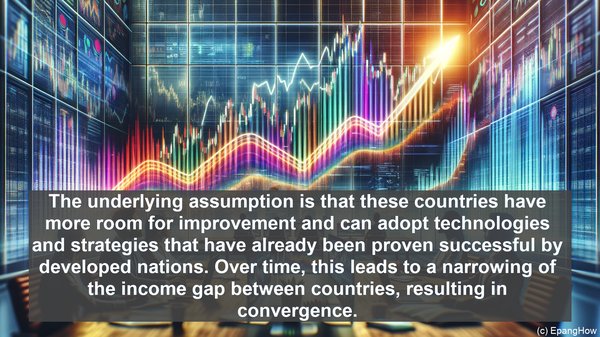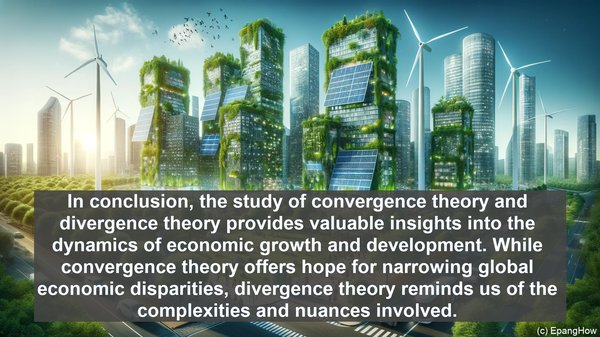Introduction: Exploring Economic Theories
Hello everyone! Welcome to this insightful article on convergence theory and divergence theory in economics. As we delve into the intricacies of these theories, we’ll gain a deeper understanding of how economists analyze and predict economic growth and development.

Convergence Theory: The Idea of Catching Up
Convergence theory, as the name suggests, revolves around the concept of economies ‘converging’ or coming closer to each other in terms of their economic indicators. This theory posits that countries with lower per capita income or less developed economies tend to grow at a faster rate compared to their more advanced counterparts. The underlying assumption is that these countries have more room for improvement and can adopt technologies and strategies that have already been proven successful by developed nations. Over time, this leads to a narrowing of the income gap between countries, resulting in convergence.

Divergence Theory: The Persistence of Disparities
In contrast to convergence theory, divergence theory suggests that economic disparities between countries can persist or even widen over time. This theory emphasizes the role of various factors, such as institutional differences, resource endowments, and historical legacies, in shaping economic trajectories. According to divergence theory, countries with initial advantages, such as abundant natural resources or strong institutions, may continue to outperform others, leading to a divergence in economic outcomes.
Factors Influencing Convergence and Divergence
Several factors play a crucial role in determining whether convergence or divergence occurs. One key factor is the level of investment in physical and human capital. Countries that allocate resources towards infrastructure development, education, and skill enhancement often experience faster growth, potentially leading to convergence. Additionally, trade openness, technological innovation, and the quality of governance can also significantly impact economic trajectories.
Implications and Criticisms of Convergence and Divergence Theories
Both convergence and divergence theories have important implications for policymakers and economists. Convergence theory, for instance, suggests that targeted interventions in less developed economies can yield significant results, potentially fostering global economic stability. On the other hand, divergence theory highlights the challenges of achieving balanced growth and the potential risks associated with overreliance on certain sectors or resources. However, it’s important to note that these theories have faced criticisms as well. Some argue that the convergence observed in certain cases may be temporary, while others question the assumptions and methodologies used in these theories’ empirical analyses.
